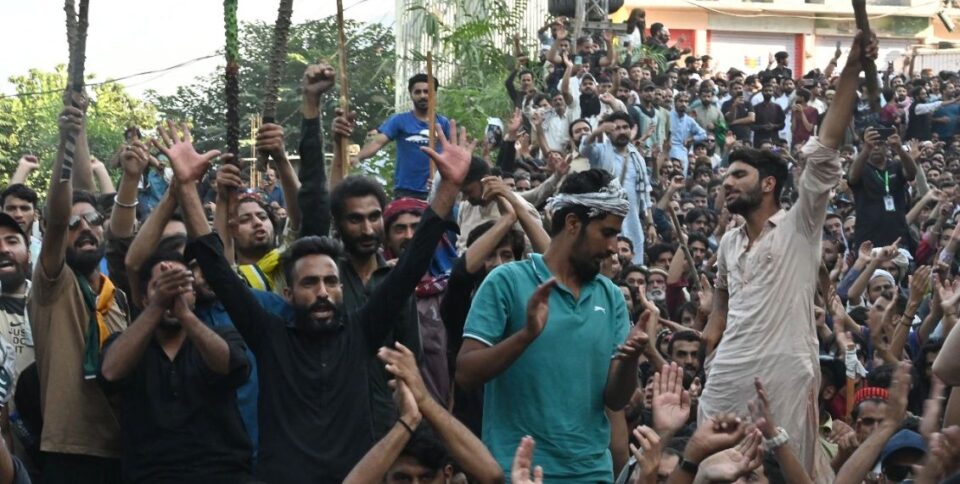MUZAFFARABAD (Oct 3) – Pakistan-occupied Jammu and Kashmir (PoK) has been rocked by days of violent protests that left at least nine people dead, including three policemen, and dozens injured. The unrest has forced Islamabad to open talks with protest leaders even as India slammed Pakistan for “horrific human rights violations” in the region.
Federal Minister Ahsan Iqbal, part of the government delegation that met protesters on Thursday, urged restraint: “Our enemy country will not waste a single second in capitalising on a crisis situation in our country. We must avoid lighting a fire that benefits the enemy.”
The protests, led by the Joint Awami Action Committee (JAAC) – a civil society coalition of students, businessmen, and professionals – are not new. They trace back to at least 2023, when locals began mobilising against rising electricity bills and wheat shortages.
How the protests began
-
2023: Residents took to the streets over high electricity tariffs and the lack of subsidised wheat. PoK locals argue they shouldn’t pay steep power bills when large-scale hydropower is generated from their own Mangla project.
-
2024: Anger deepened over privileges enjoyed by government officials – free fuel, vehicles, and security – at a time when locals struggled for jobs and basic necessities. A long march in May 2024 turned violent, killing five people, including a policeman. Prime Minister Shehbaz Sharif responded with subsidies and a judicial commission, temporarily calming tensions.
What protesters want now
The 38-point demand list released by JAAC includes:
-
Abolition of 12 reserved seats in PoK’s legislative assembly for Jammu and Kashmir migrants living in Pakistan. Locals say these seats allow Islamabad to manipulate the assembly.
-
Dropping of legal cases against earlier protesters.
-
Fair royalties from hydropower projects.
-
Greater investment in health, education, and infrastructure.
Officials say many demands are “under consideration”, though some – like scrapping reserved seats – would require constitutional changes.
What sparked the latest unrest
On September 29, 2025, JAAC called for a shutdown. Security forces responded with heavy crackdowns, deploying paramilitary units, closing schools, and curbing communications.
-
Arab News reported government claims that six policemen were killed.
-
Protest organisers countered that 12 civilians died in clashes.
-
Either way, both sides accuse each other of excessive force and provocation.
India, in a statement at the UNHRC, said Pakistan must be “held accountable for its horrific human rights violations” in PoK.
Why this round feels different
Unlike earlier protests centred on economic issues, the movement has broadened into a push for structural political reforms. Protesters say their patience has worn thin, and they demand visible changes rather than promises.
Yet, with trust between locals and authorities eroding, the risk of further escalation remains high.

